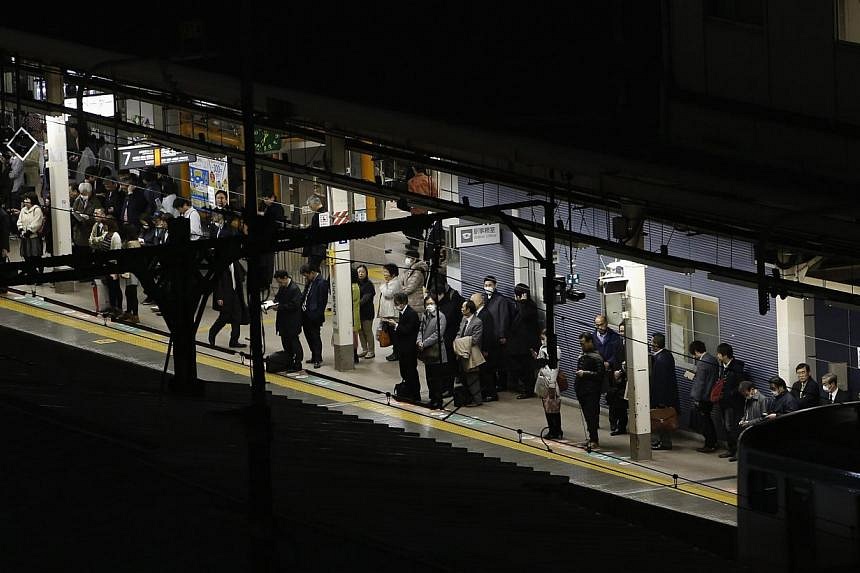TOKYO (AFP) - Most of the drunk train passengers who fall from platforms in Japan do not stagger along and topple off, but rise from an alcohol-infused slumber on benches and march headlong onto the tracks, a study has found.
The finding has sparked a review of the placement of benches, with seats in one large station rotated 90 degrees to face along the platform instead of towards the tracks, in the hope that booze-fuelled somnambulists will come to no harm.
Japan's late-drinking "salarymen" - suited city workers - are well-served by extensive urban train networks that whisk them back home at the end of the night.
While the worst that happens to most corporate warriors is nodding off and missing their stop, a small number are hurt or killed in stations every year by plunging onto the tracks.
In a bid to reduce the number of casualties, operator West Japan Railways (JR West) examined all 3,300 falls that occurred in their service area during 2012, using footage from CCTV cameras and focussing on the approximately 1,900 that involved alcohol.
Their probe - whose English title is "Behavioural characteristics of drunken passenger leading to falling down from platform and bumped into the car" - contained some startling findings.
Only 10 per cent of tipsy tumblers had weaved their way along a platform before stepping off the edge.
A further three out of 10 had been stationary when their sense of balance gave up on them and sent them crashing onto the tracks.
The remaining 60 per cent had been slumped semi-conscious or unconscious on a bench and had suddenly risen and rushed forwards, plunging onto the rails at quite a lick, the study found.
It appeared, according to the report's authors, they were suffering from "confusion of their situation awareness because of the influence of alcohol".
In other words, they didn't seem to know where they were.
"We found that many drunken people walk headlong off the platform and onto the track and that this often happens very quickly," a JR West spokesman said. "This was a surprising result for us too."
The company, which operates trains in the western commercial hub of Osaka, said it was carrying out a pilot study in the busy Shin Osaka station to test the effects of turning the benches to face up or down the platform.
"It's too early to tell at the moment, but we thought changing the direction may help prevent accidents," said the spokesman.

